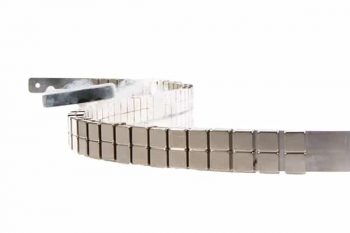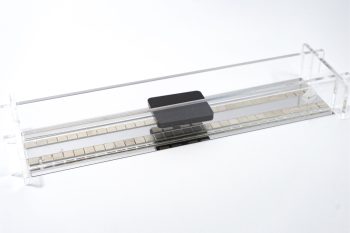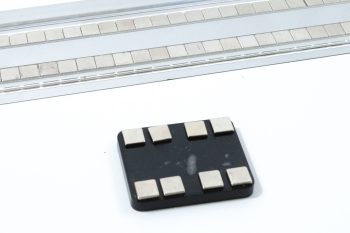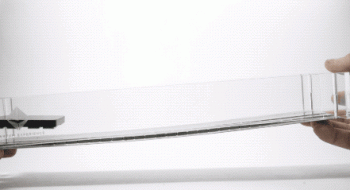Magnetic levitation is a phenomenon that combines physics and wonder, capturing the imagination of anyone who sees it in action. From science enthusiasts to educators, showcasing magnetic levitation is a perfect way to explore advanced scientific principles in a visually stunning manner. If you’re looking for engaging ways to demonstrate this, we’ve got six incredible setups that are perfect for classrooms, science fairs, or just wowing your friends at home. These demonstrations are also great for science experiment kits for teens, providing hands-on learning about quantum physics and quantum levitation. Let’s dive in!
Levitation Over a Still Magnet
This is one of the simplest and most striking demonstrations of magnetic levitation. By cooling a superconductor to its critical temperature and placing it above a magnet, you’ll witness the superconductor float steadily in midair. This occurs because the superconductor locks the magnetic field lines, creating a stable 3D locking effect.
How to Set It Up:
- Use a superconductor disk and a strong neodymium magnet.
- Cool the superconductor with liquid nitrogen until it’s fully supercooled.
- This should take around 30 seconds. You’ll know it’s ready when the bubbling subsides.
- Carefully place the superconductor above the magnet and push it towards the magnet. You should feel a slight resistance as the flux gets pinned inside the superconductor.
- It now hovers in place, seemingly defying gravity.
Pro Tip: Once the levitation is stable, try gently pushing the superconductor in any direction. It will remain locked in its new position, demonstrating the robustness and 3D nature of quantum locking.


Floating with Ring Magnets
Want to take it up a notch? Create a mesmerizing rotating & floating effect using ring magnets. Once the superconductor is cooled, place it on the ring path and watch as it locks into place and glides effortlessly. Don’t forget to lock the superconductor in the field by pushing it towards the magnet, feeling the gentle resistance. This demonstration not only shows levitation but also frictionless motion, due to the 3D locking and symmetric nature of the magnetic field (along the ring axis).
How to Set It Up:
- Arrange a series of ring magnets in a circular or custom pattern.
- Cool the superconductor and gently place it on the magnetic path.
- Lock the superconductor in the magnetic field.
- Observe how it moves smoothly, locked in its position due to quantum locking.
Best for: Science experiment kits for teens, science fairs, and exhibitions where you want a continuous, hypnotic motion that grabs attention.


DIY Straight and Circular Tracks
If you’re looking to add a creative DIY element to your demonstration, building straight or circular magnetic tracks is the way to go. The superconductor glides steadily along these tracks, even if they’re tilted or sloped. This shows the stability of quantum locking in action.
How to Set It Up:
- Build a magnetic track by carefully placing magnets on a metallic sheet.
- Make two parallel lines of magnets, preferably with an even space between them. You can make curves and straight lines but
- Make sure to keep the track as even as possible.
Make sure magnets along each track are pointing in the same direction (e.g., up) while the other track is facing the opposite way (e.g., down). - Cool your superconductor to its critical temperature.
- Place it on the track, lock it in the magnetic field, and give it a gentle push. It will glide smoothly, as if riding on an invisible rail.
Pro Tip: Use a sloped track for added dramatic effect, demonstrating how the superconductor resists falling or slipping.



Levitation of a Small Magnet Above a Superconductor
This reverse levitation setup is sure to fascinate your audience. Instead of levitating the superconductor, cool it down and place a small magnet above it. The magnet will float in midair, perfectly stable, due to the interaction with the superconducting material.
How to Set It Up:
- Cool the superconductor in liquid nitrogen.
- Place the superconductor on a flat, thermally insulating surface like styrofoam or plastic.
- If you’re using Quantum Levitation Superconductors, place the levitator with its bottom facing up (that’s where the superconductor is).
- Position a small, lightweight magnet just above the superconductor.
- It should be repelled and fly off immediately.
Congratulations! You’ve just witnessed the Meissner effect! - Push the magnet towards the superconductor until it is locked stably.
- Watch as the magnet hovers and rotates freely.
Why It’s Cool: This setup is simple yet visually captivating, making it ideal for quick demos or close-up videos.

Superconductor Floating Beneath a Strong Magnet
Flip the script with this demonstration where the superconductor hovers beneath a powerful magnet. This inversion of the typical levitation setup showcases how the locking of magnetic flux, flux pinning, is responsible for the levitation and not magnetic repulsion, such as the Meissner effect.
How to Set It Up:
- Secure a strong magnet in a fixed position so that you have access below it.
- Preferably, make a bridge setup where the magnet sits in the top middle.
- SAFETY ISSUE – Make sure the magnet is fastened steadily to a stand. Magnets exert huge forces and may cause serious injury.
- Cool the superconductor and carefully place it underneath the magnet.
- Push the superconductor towards the magnet until it locks in place and hovers below the magnet, defying expectations.
Pro Tip: The closer the superconductor gets to the magnets, the stronger the levitation becomes and can suspend heavier weights. Experiment with positioning and hanging different weights to explore the locking effect.

Quantum Locking at Different Angles
For a truly mind-bending demonstration, use the quantum locking phenomenon to make the superconductor disk held steady at different angles. Once cooled, the superconductor will remain locked in its position, keeping its orientation with the magnetic field.
How to Set It Up:
- Cool the superconductor disk with liquid nitrogen.
- Place a magnetic setup on a steady surface.
- Take the cooled superconductor and lock it above the magnets.
- See that it stays locked in space.
- Push and pull the superconductor and rearrange its orientation.
- Observe how it stays locked in position, either floating or clinging, no matter the direction.
- Try taking the magnetic setup in your hand, moving it and tilting it while the superconductor is locked. See that it stays in place.
Why It’s a Showstopper: This setup is perfect for sparking conversations about advanced physics concepts, as it challenges perceptions of gravity and stability.

Explore the Magic of Quantum Levitation
Magnetic levitation is not just science—it’s an experience. These six demonstrations highlight the beauty and complexity of superconductivity in ways that are sure to captivate any audience. They are also ideal for inclusion in science experiment kits for teens, making quantum physics more interactive and accessible. Experiment with these setups, share the wonder with others, and let the marvel of quantum physics inspire curiosity and creativity. Happy experimenting!





